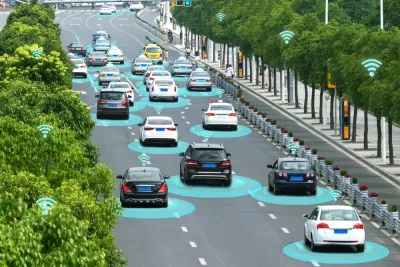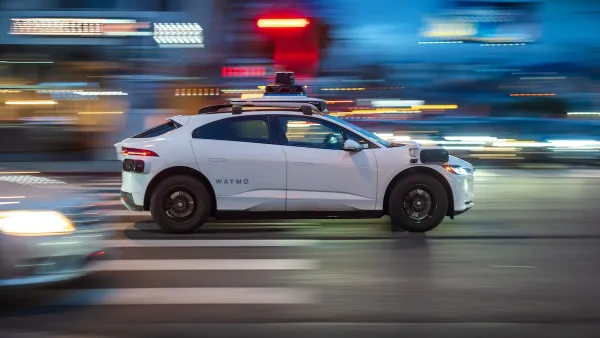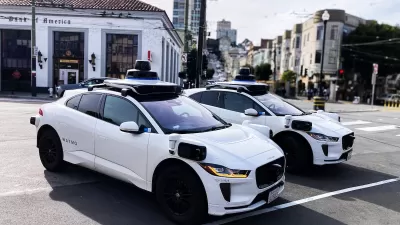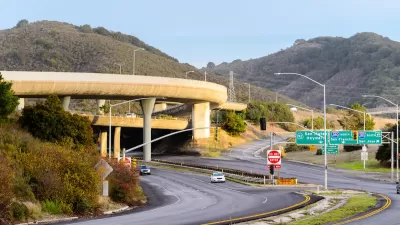A new report details the promise and perils of the growing autonomous vehicle industry.

A new report from the Urban Institute outlines the potential benefits and pitfalls of autonomous vehicles. Dan Zukowski summarizes the report for Smart Cities Dive.
According to the report, “Self-driving cars have the potential to increase transportation equity and safety but need regulation at all levels of government to avoid worsening urban sprawl, climate change and public health.”
In theory, AVs could improve mobility for people with disabilities and mobility impairments, reduce climate impacts, and make transportation more accessible. But without more robust regulations and investments in public transit and other multimodal infrastructure, AVs could add to traffic congestion and encourage sprawl. As the Urban Institute’s Yonah Freemark explains, “The ability to travel longer distances without the task of driving could encourage people to live further from urban centers.”
The report calls for a “substantial” expansion of testing and data collection for AV crashes and “recommends that states and local governments work with transit agencies to encourage multimodal options, ensure ride-hailing AVs serve all communities and follow Americans with Disabilities Act requirements, and develop policies to encourage the use of zero-emission AVs.” The report acknowledges that widespread adoption of AVs is still in the distant future, but ride-hailing companies may be some of the earliest to adopt the technology.
FULL STORY: Self-driving cars’ benefits, perils outlined in new report

Planetizen Federal Action Tracker
A weekly monitor of how Trump’s orders and actions are impacting planners and planning in America.

San Francisco's School District Spent $105M To Build Affordable Housing for Teachers — And That's Just the Beginning
SFUSD joins a growing list of school districts using their land holdings to address housing affordability challenges faced by their own employees.

The Tiny, Adorable $7,000 Car Turning Japan Onto EVs
The single seat Mibot charges from a regular plug as quickly as an iPad, and is about half the price of an average EV.

Seattle's Plan for Adopting Driverless Cars
Equity, safety, accessibility and affordability are front of mind as the city prepares for robotaxis and other autonomous vehicles.

As Trump Phases Out FEMA, Is It Time to Flee the Floodplains?
With less federal funding available for disaster relief efforts, the need to relocate at-risk communities is more urgent than ever.

With Protected Lanes, 460% More People Commute by Bike
For those needing more ammo, more data proving what we already knew is here.
Urban Design for Planners 1: Software Tools
This six-course series explores essential urban design concepts using open source software and equips planners with the tools they need to participate fully in the urban design process.
Planning for Universal Design
Learn the tools for implementing Universal Design in planning regulations.
Smith Gee Studio
City of Charlotte
City of Camden Redevelopment Agency
City of Astoria
Transportation Research & Education Center (TREC) at Portland State University
US High Speed Rail Association
City of Camden Redevelopment Agency
Municipality of Princeton (NJ)





























